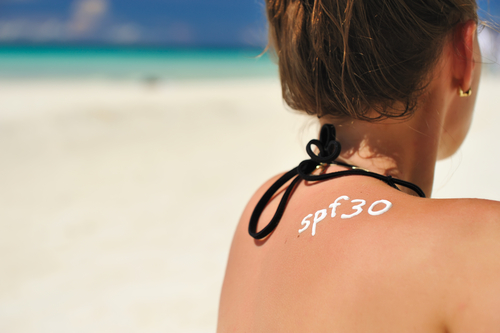There are some misleading media reports out there about sunscreen use and, if you can believe it, its potential harms. Reports like these, a vast majority of which are illegitimate, can lead many to wonder about whether or not they should be using sunscreen for their protection and which product to use.
When the studies are carefully examined, it is very evident that there is no real foundation for these concerns. The truth is that sunscreen, when used appropriately, can prevent the harmful effects of ultraviolet light.
Strong scientific evidence shows that exposure to ultraviolet radiation causes skin cancer and skin aging. In fact, the benefits of protecting yourself from ultraviolet light far outweigh any of the theoretical risk of sunscreen use.
 Most concerns are related to chemical sunscreens and their possible absorption into the body. Although some research has shown that the primary chemical sunscreen oxybenzone can be absorbed through the skin, there are no studies showing any clinically significant negative effects on humans.
Most concerns are related to chemical sunscreens and their possible absorption into the body. Although some research has shown that the primary chemical sunscreen oxybenzone can be absorbed through the skin, there are no studies showing any clinically significant negative effects on humans.
Fortunately, chemical sunscreen concerns can be eliminated by the use of the physical sunscreens. Physical sunscreens use fine particles of minerals such as zinc oxide and titanium dioxide to block the ultraviolet light at the skin surface and reject it back away from the skin.
Both of these minerals are too large in particle size to be absorbed into the skin. No studies have yet shown any systemic absorption when applied only on the surface of the skin topically.
 The final issue of controversy is usually related to picking the right SPF, or sun protection factor. The American Academy of Dermatology recommends everyone, regardless of skin color or ability to tan, regularly apply a sunscreen with an SPF of at least 30.
The final issue of controversy is usually related to picking the right SPF, or sun protection factor. The American Academy of Dermatology recommends everyone, regardless of skin color or ability to tan, regularly apply a sunscreen with an SPF of at least 30.
In fact, higher SPF ratings only provide slightly greater UV protection once you go above 30. There is no harm in using higher SPF ratings, but the most important use for proper protection is remembering to reapply regularly if you are out in the sun for prolonged periods of time.
Especially in this time of COVID-19, it is important to get outside and enjoy the fresh air. But enjoy it cautiously, and with proper skin protection.

